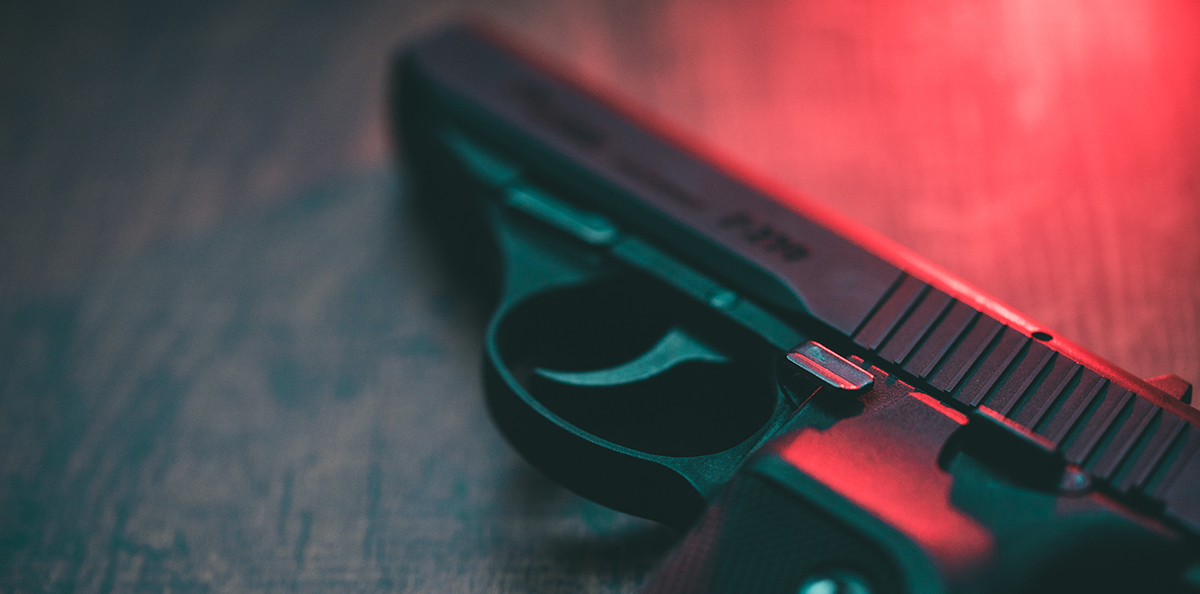Weapons Hold: A legal practitioner’s guide to the Lautenberg Amendment

History of the Lautenberg Amendment
The Gun Control Act of 1968 was the foundation for gun control in the United States and is best known for prohibiting convicted felons from possessing firearms. However, few people realize that there was a Public Interest Exception built into the law. Specifically, the Gun Control Act allowed military personnel, law enforcement, and other government employees required to carry firearms for official use to continue possessing them, despite a felony conviction.
The 1994 Restraining Order Firearm Ban
In 1994, Congress enacted a domestic violence amendment to the Gun Control Act. This amendment prohibited anyone subject to a protective order for harassment, stalking, or making threats to an “intimate partner” from owning or possessing firearms. Notably, this 1994 provision did not eliminate the Public Interest Exception; military and law enforcement personnel could still carry firearms for duty.
The 1996 Lautenberg Amendment
In 1996, Congress passed the Domestic Violence Offender Gun Ban, sponsored by Senator Frank Lautenberg. Known as the Lautenberg Amendment, this law expanded firearm restrictions to include anyone convicted of a misdemeanor crime of domestic violence. Unlike the 1994 amendment, the Lautenberg Amendment abolished the Public Interest Exception for this class of offenses.
Key Provisions of the Lautenberg Amendment
- Prohibits purchase, possession, transportation, and use of firearms or ammunition by anyone:
- Convicted of a misdemeanor domestic violence offense
- Subject to a qualifying domestic violence restraining order
- Makes it a felony to knowingly sell or provide a firearm or ammunition to someone in these categories
- Applies retroactively: No grandfather clause for pre-1996 convictions
- No exemption for official duties: Applies equally to military, law enforcement, and other government roles
“There is no military or law enforcement exception to the Lautenberg Amendment.”
Impact on Military and Law Enforcement Careers
Military service members and law enforcement officers convicted of a qualifying domestic violence misdemeanor have frequently lost their ability to serve due to the inability to possess a firearm.
Exceptions and Operational Workarounds
- Non-deployable status: Convicted service members are deemed ineligible for assignments requiring firearms, especially overseas.
- Already deployed personnel: Those already overseas may finish their current assignments before returning stateside.
- Non-firearm roles: Some service members can continue in administrative or non-combat roles that don’t require firearm access.
- Crew-served weapons: Systems like tanks, mortars, and missile launchers are not considered firearms under the law, and may still be operated by convicted individuals.
Relief and Expungement Options
Anyone convicted of a misdemeanor domestic violence offense can seek: – Expungement of the conviction – Pardon or other relief from disability
If the relief does not explicitly restrict firearm rights, the Lautenberg Amendment no longer applies.
Legal Context and Recent Developments
As of 2025, the Lautenberg Amendment remains enforceable, but it’s part of an evolving legal landscape influenced by: – The 2022 Supreme Court decision in NYSRPA v. Bruen, which heightened scrutiny of gun laws under the Second Amendment – Pending cases such as U.S. v. Rahimi, which challenge the constitutionality of gun restrictions related to domestic violence
The Lautenberg Amendment is a federal law and although it is facing challenges in the courts, it should be noted that a state court’s expungement of a misdemeanor domestic violence conviction will not restore an individual’s rights to firearms – only a federal court order or pardon will restore them.
Quick Reference Table
| Scenario | Is Firearm Possession Legal? |
| Misdemeanor DV conviction (pre-1996) | No (applies retroactively) |
| Subject to a DV restraining order | No (under 1994 law) |
| Active military role requiring firearms | No |
| Role using crew-served weapons | Yes, in specific non-firearm roles |
| Conviction expunged or pardoned | Yes, if no firearm restriction stated |
Note: This article is for educational purposes and should not be construed as legal advice. Always consult qualified counsel for case-specific guidance.
